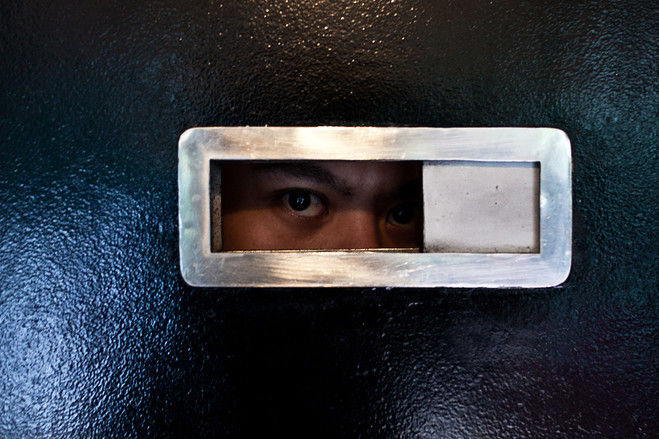You want in on this lecture recording? I'm going to need to see some engagement up front...
- CP Moore
- Feb 16, 2022
- 6 min read

A short (ish) one today. A post more to pass on a little tip; a micro-teach, if you will. Following on from my last piece about how much should we provide to our students before we're not actually doing them any long term favours, today's thought (and a digital trick!) is about attendance and engagement.
Attendance is down, across the board. I'm not just talking about my lectures (though they too are far from packed to the rafters this year compared to two years ago when last we all enjoyed the freedoms of actually being on that hallowed lecture theatre stage). This is everywhere, across modules, levels, courses, departments, faculties and institutions. You only need skim through the global content of Times Higher to see how many article discuss, complain, and tear their hair out about how poorly classes are being attended the world over right now. It could of course be purely covid related - the idea that after two years of interrupted learning, online tutelage, and fear of infection, "making do" with the online provision we (generally) still offer in addition to our face to face teaching on campus is enough to pass so it'll do. That having gone so long without real student:lecturer and student:student interaction that what's another year of staying home. Anxieties about leaving the house, travelling on public transport and so forth have certainly increased, and are perfectly understandable.
Or maybe it's a sign of the times. A sign of the attitude towards learning and the true purpose of a degree level education. Maybe it's offering too many reasons not to come in, offered under the guise of supporting everyone in everything in any way you can think of so that they are happy. Or maybe we're just doing everything wrong. Whatever the reason, they just aren't coming. Not even Kevin Costner could get them to come simply by building "it". The "good ones" (as we so often refer to them, trying not to make it sound like the diametric opposite are not "good" but at the same time shouldering an uncomfortable and regrettable feeling that "they" must just not care enough about the experience and seek only the grades) still come of course. Those who have discovered they learn better when in among their peers in the room, that have grasped the lessons we try so hard to get across to them that those who attend and engage do better and that university is about a learning experience, not just getting the content.
In any case, one of the ways in which attendance can suffer is down to lecture capture. The practice of recording your lecture or workshop or tutorial. Initially we (in the royal "academic at any university" sense) did it as a backup. We did it because the technology had evolved to the point where we could record the video, audio, and screen of our class just in case we were ill or otherwise unable to deliver the lecture the following year.
Then we started making it a useful tool for those who had genuine reasons (usually mental or physical medical reasons) for not attending occasionally. It meant they did not need to worry about missing out on things for reasons beyond their control. A safety net, and good one. So we started making it available to them too, rather than only storing for "just in case".
Then we started to realise that actually it had potential as a handy revision or note consolidation tool; a way for students to not have to worry so much about scribbling down every word we said and instead "be there" and participate, safe in the knowledge that all that information (on which they might be assessed) is there waiting for them. So we made it a bit more available.
Then attendance started dropping. Dropping fast. So we changed gears, tried to provide more reasons for coming in, enhancing our activities with tasks and polls and the like, taking registers, monitoring assessment progress to prove categorically and with no insignificant amount of data that those who show up do better and those that rely on the recordings don't do quite as well.
Then they (now the royal "average student cohort, allowing for the good ones and the okay ones and so forth") realised that if their exams were at the end of the module, and they would cram revise right before anyway (and now make use of the recordings to help with that revision because now everyone was getting it), then why not just learn it all for the first time in that revision period? Why not binge watch all the learning? Surely it wasn't in their heads by the time the revision period came around anyway and they'd have to watch it all again, so why not skip that first part and knock it all out over winter or spring break? Genius!
So then we reached ghost town stage. Even the okay ones who tried to come in but often didn't say much started to drop off. Part time work is crucial in paying for the cost of living at university nowadays, so the more shifts you can take and still pass, the more sensible a decision. You can't argue with that - student rent is just ridiculous (another post for another day there). And this means that even the most engaging, the most inspirational, the most beloved and supportive lecturers now find their numbers dwindling compared to a couple of years ago.
And I don't like it.
Not just because, to my knowledge based on anecdotes alone, I am supposedly one of those engaging and supportive (if sarcastic as all heck) lecturers. But because, as I said in my other post, I genuinely don't feel this absence is going to do them any good in the long term. But now we have to record, and we have to provide it to everyone; not just those with medical reasons, but also anyone who might have something that might mean they can't make it - jobs, children, deadlines, distance, or just too tired. So we're a little bit backed into a corner. How do we get them to engage when we can't even get them to come in? How do we get them to realise the massive downside to absence when it comes to academic performance, soft skills, community, communication, energy? I feel it's my responsibility to do something to get them to work and to think a little, even if just a tiny bit and for the briefest of moments. Even if it is just to prove that small point about not being able to coast through a degree with Google and a lecture recording.
So here's what I've started doing...
I record the live lecture.
I put up the recording on the VLE.
But, I also put up a short, formative quiz based on either the content from the previous year that they should have reviewed before the class anyway (if you don't remember or understand the basics, what's the point in moving onto the more complex and applied stuff), or based on the lecture slides for that class that of course they all had access to the entire time (for making notes - that's not gone away).
And I make this quiz something you both have to do and to pass in order for that recording link to even become visible to them.
Now, it's not unfair (as that, one could argue, would be the immediate response - having to work a bit to get something). It's only 5 questions pulled randomly from a bank of around 20, and you only have to get 3 of them right. The whole exercise is a lesson in formative feedback, and they can have as many goes as they like. And it's a safe space because the points don't matter and no one will know what you got. They all have access to the slides for information. The recording is available as per the policy. You just have to demonstrate you have learned a little something in order to get a ticket to the big show. Now if you were there in class, it will likely be a doddle. If you weren't, the answers can all be found on the slides. So now we have a reason to engage a bit. And one that is measurable, monitorable (as the points register on the VLE and so you can see who tried, and when, to gauge how rampant the "wait till before the assessment" mindset is), and you can even tally it with the data analytics of the recordings to get a sense of binge watching, cursory viewing, note improvement, and so on.
It might seem like it's putting up a barrier, creating a hurdle to overcome to give them access to something that we readily give away along with the farm nowadays. But it's only 5 minutes of their life, once. They don't have to do a quiz every time they want to watch it, and if they don't get that 3 out of 5 pass mark, then that kinda suggests they have a little bit of pre-reading to do before delving into the full show in the recording. Better now they realise that and put the work in, than not do so well as the summative assessment where it all matters. And as numerous students who do attend, and do see the value in learning in person have said to me since doing this (and who have to do the quiz as well but appreciate the formative opportunity to test themselves)... what's wrong with occasionally having to earn your way into a screening of "academia's greatest hits"?







Comments